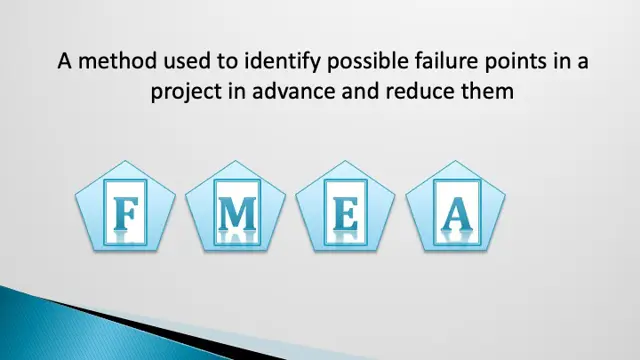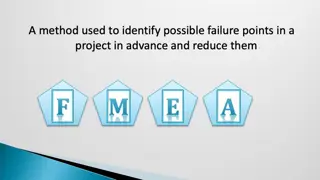
FMEA IN SOFTWARE TESTING
Failure Modes and Effects Analysis (FMEA) in Software Testing
York ITEST & Consulting Ltd
Summary
- Reed Courses Certificate of Completion - Free
Add to basket or enquire
Overview
Failure Modes and Effects Analysis (FMEA) is a product development and operational management procedure that analyzes potential types of errors in a system by determining the likelihood and effects of errors and classifying them based on similarities.
This course provides software testing professionals with the opportunity to learn and implement the FMEA methodology.
Training on FMEA in software testing is of great importance for the following reasons:
Improving risk management skills: Risk management is crucial in software testing processes. The FMEA course equips participants with the skills to identify, analyze, and manage potential risks. It enables testers to prioritize their testing efforts on critical areas, thus providing proactive risk management.
High-Quality Software Development: This course enables us to conduct software development tests more effectively. By learning the analysis methods of FMEA, we have the opportunity to identify weaknesses in the design or implementation phase of the software at an early stage. This helps us improve the quality and reliability of the software, enabling us to develop more robust and high-quality products.
Compliance with Industry Standards: Many industries specify that implementing risk management techniques like FMEA is a requirement. Therefore, the FMEA course is an important step for compliance with industry standards. Taking FMEA training can help software testers understand and fulfil these compliance requirements.
Cost Reduction: By using FMEA to identify and manage risks proactively, companies can avoid costs associated with post-release bug fixes, customer support expenses, and reputation damage.
Career Development and Advancement: This course can contribute to participants' career development by enhancing their skills.
In general, integrating FMEA into software testing training provides testers with fundamental techniques for effectively identifying, analyzing, and mitigating risks, leading to higher-quality software products and improved customer satisfaction.
Curriculum
Course media
Description
The FMEA course in software testing teaches the Failure Mode and Effects Analysis (FMEA) methodology.
It aims to provide participants with the skills to identify, analyze, and manage potential risks. Additionally, it provides the necessary knowledge and skills to effectively implement this method.
This course also provides participants with the opportunity to practice managing risks in real-world scenarios, in addition to implementing the FMEA methodology. This helps participants enhance their risk management skills and improve the success of their projects.
Who is this course for?
FMEA in Software Testing training targets everyone interested in risk analysis.
This includes Stakeholders, Designers, Engineers, Engineering Candidates, Software Testers, Analysts, Test Managers, Software Developers, Business Analysts, User Representatives, System Engineers, Security Experts, Project Managers, Quality Assurance Specialists, Quality Managers, Industry Regulators, Compliance Professionals, Production Experts, and more.
Additionally, this training will be beneficial for individuals looking to add risk analysis to their professional careers.
Questions and answers
Currently there are no Q&As for this course. Be the first to ask a question.
Certificates
Reed Courses Certificate of Completion
Digital certificate - Included
Will be downloadable when all lectures have been completed.
Reviews
Currently there are no reviews for this course. Be the first to leave a review.
Legal information
This course is advertised on reed.co.uk by the Course Provider, whose terms and conditions apply. Purchases are made directly from the Course Provider, and as such, content and materials are supplied by the Course Provider directly. Reed is acting as agent and not reseller in relation to this course. Reed's only responsibility is to facilitate your payment for the course. It is your responsibility to review and agree to the Course Provider's terms and conditions and satisfy yourself as to the suitability of the course you intend to purchase. Reed will not have any responsibility for the content of the course and/or associated materials.


